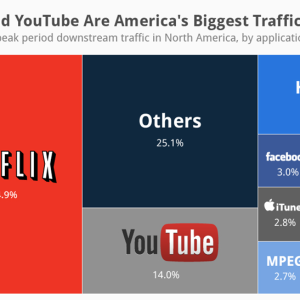Introduction
When two businesses partner together to promote and sell products or services, they enter into an affiliate agreement. And a business owner needs to understand what an affiliate agreement is and how it works.
This guide will explain the different types of affiliate agreements, registration and use, duration and termination, website restriction, standard contract usage, the benefits and risks of agreeing, and how to draft an agreement that works for both parties.
What Is An Affiliate Agreement?
An affiliate agreement is a contract between two businesses in which one agrees to promote the products or services of the other in exchange for a commission on sales. The terms of the agreement can vary, but typically include provisions such as duration, website restrictions, standard contract usage, and how commissions are paid.
Affiliate Agreement Types:

In the world of affiliate marketing, various payment models exist that determine how affiliates get compensated for their promotional efforts.
1. Pay-per-sale: The first payment model is pay-per-sale, which awards affiliates a commission only when a sale is made. This type of agreement is typically used for high-converting products or services. However, it requires a high degree of burstiness in promotional content to keep potential customers engaged and motivated to complete a sale.
2. Pay-per-lead: The second payment model is pay-per-lead, which compensates affiliates for every lead generated, regardless of whether it results in a sale. This payment model is typically used for products or services with a low conversion rate. As such, promotional content must be highly perplexing to keep potential customers interested in providing their contact information as a lead.
3. Pay-per-click: The third payment model is pay-per-click, which compensates affiliates for every click generated, even if it doesn’t result in a sale. This payment model is typically used for low-cost or highly converting products or services. To maximize profits, promotional content must have a high degree of burstiness, compelling potential customers to click and explore further.
4. Revenue sharing: Finally, revenue-sharing agreements entitle affiliates to a percentage of all sales generated, regardless of whether the sale is made online or offline. This payment model is typically used for high-converting products or services. To succeed under this agreement, promotional content must be highly perplexing and engaging to drive conversions and increase revenue.
Why is the affiliate agreement important?
As a discerning business owner, it behooves you to grasp the finer intricacies of the affiliate agreement, given that it is the requirement of your affiliation with your affiliates. Notably, the agreement must unequivocally explicate the respective roles and obligations of the parties concerned, as well as the commission structure and payment schedule, so as to avert any ambiguity.
The exigency of having an affiliate agreement in place cannot be overstated, as it serves as an impregnable protection against liability. For instance, in the event that an affiliate advocates your product or service on their website, and a customer clicks on the link and subsequently sustains an injury, the affiliate may potentially be held accountable. Nevertheless, having a rational agreement in place that specifies that the affiliate assumes sole responsibility for the content on their website can disengage your business from the thorny issue of liability.
What should be included in the affiliate agreement?
Affiliate agreements, being a multifaceted legal document, can be steeped in complexity and length. Nonetheless, certain salient provisions must be enshrined in every agreement, serving as indispensable signposts.
1. The term of the agreement: First and foremost, the term of the agreement must be conspicuously delineated, along with any pertinent renewal terms. This will prevent any unnecessary confusion and potential legal wrangling in the future.
2. The affiliate’s obligations: Secondly, the affiliate’s obligations must be laid out in an unequivocal and perspicacious manner, outlining their precise mandate, such as promoting the company’s products or services on their website, and the consequential implications of failure to meet these requirements.
3. The company’s obligations: Thirdly, the agreement should specify the obligations of the company itself, including providing the affiliate with up-to-date information on products and images to be disseminated on the affiliate’s platform.
4. The commission structure: And next, the commission structure must be lucidly and accurately stated to prevent any ambiguity. This is particularly germane as it elucidates how commissions will be computed and disbursed.
5. The payment schedule: The payment schedule should encompass all your affiliates and be extended on a disciplinary basis, either per quarter or per month.
6. The website restrictions: It is of paramount importance to acquaint the affiliate with the constraints and limitations that subsist in regards to the company’s website. This necessitates an exhaustive elucidation of the activities that are permitted and prohibited on the website, as well as the inclusion of links to other websites.
7. The confidentiality clause: Incorporating the confidentiality clause into the agreement is of paramount importance. The clause must be carefully crafted to ensure that the affiliate does not disclose any confidential information about the company to a third party. A good level of perplexity and burstiness in the language is necessary to clearly convey the importance of this clause and its implications for the affiliate.
8. The termination clause: Finally, the agreement must incorporate the termination clause, outlining the scenarios that could warrant the agreement’s dissolution, such as a violation of the agreement’s terms.

How to draft an affiliate agreement?
The creation of an affiliate agreement is a delicate and nuanced process that necessitates a profound understanding of the goals of the agreement and the respective interests of the parties involved. Therefore, the agreement must be a seamless interplay between clarity, brevity, and comprehensibility, to forestall any potential legal or operational pitfalls.
If you happen to be a business owner, you are unequivocally obliged to ensure that the agreement is meticulously crafted to provide impregnable protection from liability, while at the same time, defining the intricate terms of the relationship.
On the other hand, if you are an affiliate, it is incumbent upon you to scrutinize the agreement, ensuring that it unambiguously and accurately stipulates your commission structure and payment schedule, which can have a profound impact on your profitability.
If you are seeking to draft an affiliate agreement that exudes an air of effectiveness, it is imperative that you pay close attention to the following tips:
- Use unpretentious and plain language in the agreement, devoid of legal jargon, to ensure that the document is comprehensible and unambiguous.
- Articulate the key provisions with the utmost clarity and brevity, so that the agreement’s meaning is crystal clear and leaves no room for misinterpretation.
- Ensure that all relevant information, such as the relationship’s terms, commission structure, and payment schedule, are included in the agreement, leaving no stone unturned.
- Before signing the agreement, it is critical to have it meticulously reviewed by a lawyer, to ensure that it is indeed ironclad and capable of protecting your interests.
If you desire to gain a more nuanced understanding of an affiliate agreement, we implore you to read our comprehensive guide.
Registration and use
When one endeavors to become an affiliate of a company and subsequently promote their products or services, it is typically incumbent upon them to first complete a registration process, the parameters of which are outlined in the affiliate agreement.
Said agreement, being the foundation of the affiliate’s association with the company, may also stipulate the necessity of adherence to specific guidelines concerning the use of keywords or phrases during promotional efforts, as provided by the company. Upon completion of the registration process, the affiliate will be bestowed with a unique link or code that serves as their exclusive identifier for the purposes of promotion and attribution of sales.
Duration and termination
Within the context of affiliate agreements, it is not uncommon for said agreements to have a designated time period, following which said agreement can be either terminated or renewed, contingent upon the terms and conditions of the affiliate agreement. The duration of said agreement is typically governed by the company, with numerous factors being taken into consideration in the course of determination, such as the performance metrics of the affiliate with regards to sales, website traffic, and conversion rate, among others.
In addition to the prescribed duration, affiliate agreements may also encompass provisions dictating the process of termination, which are typically characterized by exacting specifications that must be adhered to with great specificity in order to ensure compliance with the affiliate agreement.
Website Restrictions
It is not uncommon for affiliate agreements to contain website restrictions that serve to constrain the affiliate’s promotional efforts to a specific website, thereby inhibiting the promotion of the company’s products or services on competing websites. The inclusion of such restrictions represents an important safeguard for companies looking to maintain a competitive edge in their market segment.
Standard contract usage
In order to maintain the integrity of the agreement between the company and the affiliate, it is also standard practice for said agreements to feature a provision pertaining to contract usage, requiring the affiliate to utilize the company’s approved contract when promoting their products or services. This provision serves to preclude the affiliate from manipulating the terms of the contract to their financial benefit.
The standard clauses in the Affiliate Agreement are:
1. Entire Agreement: Firstly, the Entire Agreement clause serves to explicitly state that the affiliate agreement represents the totality of the agreement between the company and the affiliate, effectively rendering null and void any other agreements or understandings that may exist.
2. Assignment: Secondly, the Assignment clause holds that the affiliate is barred from the delegation of their rights or obligations under the affiliate agreement to any other party, thereby ensuring that the agreement remains between the two entities that originally entered into it.
3. Waiver: The Waiver clause is critical in the event of a potential dispute, as it articulates that the failure of the company to enforce any provision of the affiliate agreement does not in and of itself constitute a waiver of said provision.
4. Severability: Severability clause serves to affirm that if any provision of the affiliate agreement is deemed to be invalid or unenforceable, the remaining provisions of said agreement will continue to be in effect.
5. Governing Law: Lastly, the Governing Law clause is of paramount importance in delineating the legal framework surrounding the affiliate agreement, indicating that the agreement is subject to the laws of the state in which the company is headquartered.
The benefits and risks of entering into an affiliate agreement
In the sphere of affiliate marketing, one must weigh the advantages and disadvantages of entering into an affiliate agreement. On the one hand, there are numerous benefits associated with affiliate agreements, the most prominent of which is the potential to generate substantial revenue via commission on all sales stemming from the affiliate’s promotional endeavors. This becomes especially significant if the products or services in question boast a high conversion rate.
On the other hand, there are a host of risks associated with affiliate agreements that cannot be ignored. The most significant risk is the prospect of the affiliate falling short of the minimum sales requirement stipulated in the agreement, which could result in the affiliate being penalized and required to pay an exorbitant fine to the company.
Furthermore, the affiliate runs the risk of engaging in unethical marketing practices when promoting the company’s products or services, which could ultimately lead to the affiliate being expelled from the program and forfeiting any and all commissions owed to them.
Finally, in the event that the company goes bankrupt or out of business, the affiliate may find themselves in a precarious position, as they may be unable to recover any commissions owed to them.
To draft an affiliate agreement that works for both parties
When crafting an affiliate agreement, achieving equity and harmony between the parties is paramount. One optimal approach to achieve this is by seeking legal counsel to review the agreement before signing.
The most important clauses in an affiliate agreement are the terms and conditions, registration and use, duration and termination, website restriction, standard contract usage, and governing law. These clauses should be carefully reviewed by both parties to ensure that they are fair and reasonable.
Conclusion
An affiliate agreement is important for every business. This guide covers the different types of affiliate agreements, registration and use, duration and termination, website restriction, standard contract usage, the benefits and risks of agreeing, and how to draft an agreement that works for both parties.
If you have any questions about drafting an affiliate agreement, or if you need assistance drafting an agreement that works for both parties, please contact us. We would be happy to help you. 12 Channels is a digital marketing agency that can help you with all your affiliate marketing needs. Learn more about us on our website.

























